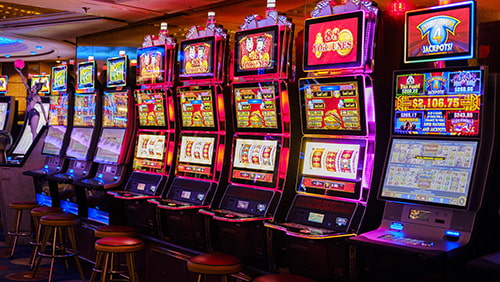When Eldorado Resorts and Caesars Entertainment melded into one, extremely large casino company this past summer, they did so only after having jumped through a number of hoops. One of those hoops was held by the Indiana Gaming Commission (IGC), which was concerned about the newly-formed Caesars holding too much control in the state. As a result, the gaming regulator agreed to sign off on the deal, only if a couple of gaming properties were put up for sale. Horseshoe Hammond was ultimately designated as one of those properties, and the clock started ticking for a new owner to be found. However, Caesars just forced the sale into overtime after the IGC agreed to give it an extension for finding a buyer.
The IGC greenlighted the Caesars/Eldorado merger with the caveat that three properties be sold, or the state would rescind its approval. Caesars had initially wanted to unload just two, but regulators held fast to their position that the company would still have too large a piece of the pie, and a three-casino deal was reluctantly approved. Caesars already turned over Tropicana Evansville to Twin River Worldwide Holdings, which is now known as Bally’s, and is preparing to complete a deal to sell Caesars Southern Indiana to the Eastern Bank of Cherokee Indians. The Horseshoe Hammond is the last remaining piece to go in order to make regulators happy, but the current COVID-19 environment is making things more difficult.
Now, instead of having to find a buyer by the end of this year, Caesars will have until the end of 2021 to see the property change hands. Caesars requested the extension in light of the current economic situation, and the IGC unanimously accepted its justifications. Selling the first two properties, which even included a no-cash-down arrangement with Bally’s, wasn’t as difficult because of the sizes and values of those properties. However, Horseshoe Hammond is the largest casino in Indiana and has 2,235 gaming machines and gaming tables that can seat 1,105 gamblers. During the most recent fiscal year, it saw $309.3 million in revenue, which is substantially more than the roughly $225 million drawn to the state’s second-largest casino, the Indiana Grand.
In addition to placing the need for an extension on COVID-19, Caesars also pointed out that a sudden expansion of gaming in Chicago, which is about two and a half hours to the north in Illinois, is weakening Horseshoe Hammond’s attractiveness. The casino operator believes it might need at least another 18 months to find someone willing to buy the property and, by then, perhaps the IGC will have forgotten its pact.














